Understanding how your child’s learning is structured is crucial for supporting them through school and preparing for their future. In England, the national curriculum is divided into key stages that map to age ranges and year groups. Key Stage 3 (KS3) covers the early years of secondary school (ages 11–14), while Key Stage 4 (KS4) encompasses the GCSE years (ages 14–16). In this comprehensive guide we explain what students study during KS3 and KS4, how assessment works, and how parents can help. Along the way we’ll address common questions, highlight curriculum changes and give practical advice.
Jump to Section
Overview: What Is the National Curriculum and Why Does It Matter?
The national curriculum sets out what most state schools in England must teach. It acts as a framework to ensure children receive a broad and balanced education. Although academies and free schools can vary, many still follow the curriculum to maintain standards. The curriculum is divided into key stages that reflect children’s developmental stages and learning needs:
- Key Stage 1 (KS1) – Ages 5–7, Years 1–2 (primary school)
- Key Stage 2 (KS2) – Ages 7–11, Years 3–6 (primary school)
- Key Stage 3 (KS3) – Ages 11–14, Years 7–9 (lower secondary)
- Key Stage 4 (KS4) – Ages 14–16, Years 10–11 (upper secondary)
The national curriculum defines core subjects (English, mathematics and science) and foundation subjects (e.g., computing, history, geography, languages). Schools must also teach personal, social, health and economic (PSHE) education and religious education, though content may vary. Understanding how KS3 and KS4 are structured helps parents and students make informed choices and manage expectations.
Key Stage 3 (KS3): A Broad Foundation (Ages 11–14)
What Is KS3 and Why Is It Important?
Key Stage 3 marks the transition to secondary school. It covers Years 7 to 9 (ages 11–14) and introduces students to a wide range of subjects while developing essential skills like critical thinking, problem‑solving and independent study.. The aim is to build a strong foundation before students specialise in KS4. Pupils begin exploring subjects in greater depth, including practical and creative disciplines, and they learn to manage timetabled lessons across multiple classrooms and teachers.
Subjects Taught in KS3
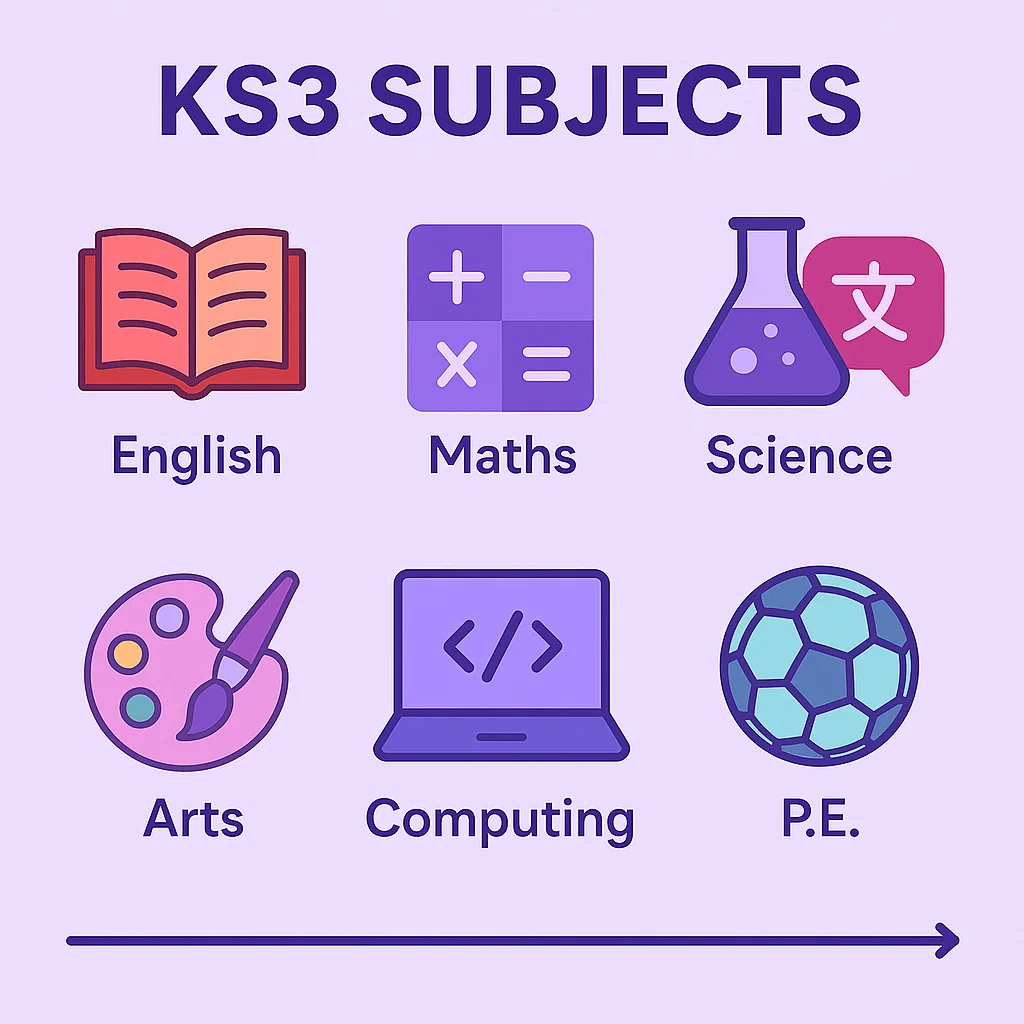
According to the national curriculum, state‑funded schools must teach the following subjects at KS3:
- English: Covering reading, writing and spoken language. Students explore a variety of texts and learn grammar, vocabulary and literary analysis.
- Mathematics: Focusing on number, algebra, geometry, statistics and problem‑solving.
- Science: At KS3 this is taught as a combined discipline but introduces biology, chemistry and physics. Students conduct experiments and learn scientific enquiry.
- History and Geography: Exploring local, national and world history, as well as physical and human geography.
- Modern Foreign Languages: Most schools offer one or more languages such as French, Spanish or German, some also teach languages like Urdu or Mandarin.
- Design & Technology (including food technology, product design and textiles, encouraging creativity and practical skills.
- Art & Design and Music: developing creativity, appreciation of culture and performance.
- Physical Education (PE): promoting fitness, health and teamwork through sports and activities.
- Computing: Teaching programming, digital literacy and online safety.
- Religious Education (RE): Examining world religions and moral issues.
- Citizenship: Exploring democracy, rights, responsibilities and community.
Schools must also provide relationships and sex education and PSHE (personal, social, health and economic education). Some subjects, such as drama and additional languages, may be offered depending on school resources. Students in Wales may also study Welsh.
Assessment in KS3
Unlike KS4, there are no national exams at KS3. Schools use teacher assessments, class tests and end‑of‑year examinations to track progress. Pupils receive levels or grades to indicate attainment and identify areas for improvement. Parents should engage with school reports and parents’ evenings to understand their child’s progress.
How Parents Can Support KS3 Learners
- Encourage curiosity across subjects. KS3 is about breadth: students are exposed to arts, languages, computing and humanities. Support them by talking about what they learn, visiting museums or galleries, and exploring historical documentaries or science podcasts.
- Develop good study habits. Help your child establish a quiet study routine, use revision strategies such as mind maps or flashcards, and manage homework deadlines. Encourage reading for pleasure to build vocabulary and comprehension skills.
- Promote language learning. Even if your child isn’t taking a second language at school, consider introducing them to apps or online resources for languages. Learning a second language enhances cognitive flexibility and may support GCSE choices later.
- Support new skills like coding and digital literacy. Many students discover computing during KS3. Free websites and courses can help them explore programming and digital creativity.
- Talk about future goals. While KS3 is not yet exam‑oriented, early discussions about interests and potential careers can motivate your child and inform future subject choices. For example, interest in medicine could prompt them to focus on science; a passion for storytelling may lead to deeper exploration of English or history.
Key Stage 4 (KS4): Preparing for GCSEs (Ages 14–16)
What Is KS4 and How Is It Structured?
Key Stage 4 covers Years 10 and 11 (ages 14–16). During this stage students work towards qualifications, usually General Certificate of Secondary Education (GCSE) or International GCSE (IGCSE). KS4 builds on KS3 foundations but narrows focus: pupils study compulsory core subjects and choose optional subjects aligned with their interests, career goals and further education plans. This is the stage where exam boards (such as AQA, Edexcel, OCR and WJEC) influence course content and assessment methods.
Compulsory Core Subjects
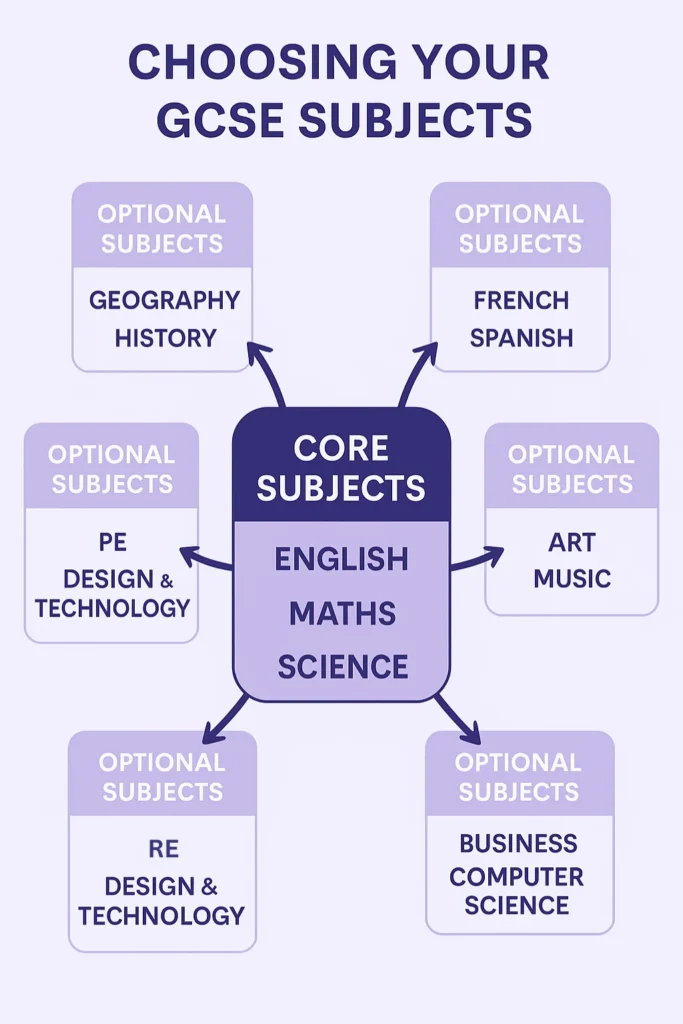
Government guidance specifies that students must study the following core subjects at KS4:
| Core subject | Overview |
|---|---|
| English | Students typically take GCSEs in English Language and English Literature. They analyse fiction and non‑fiction texts, practise writing for different audiences, and develop spoken language skills. |
| Mathematics | The GCSE mathematics syllabus covers number, algebra, ratio and proportion, geometry and measures, probability and statistics. It emphasises problem‑solving and real‑world applications. |
| Science | There are different pathways: students can take Combined Science (worth two GCSEs) or choose Triple Science (separate GCSEs in Biology, Chemistry and Physics). Combined science gives a broad overview, while triple science delves deeper, benefiting those pursuing science A‑levels. |
In addition to the core subjects, schools must provide computing, physical education and citizenship, though these may not be examined at GCSE level. Schools are also required to provide relationships and sex education and religious education, though these may be delivered through PSHE or other lessons.
Optional Subjects and the EBacc
KS4 students usually select between two and four optional subjects. Options vary by school but may include:
- Modern or ancient languages: French, Spanish, German, Latin, Mandarin. Mastering a language can broaden horizons and counts towards the English Baccalaureate (EBacc).
- Humanities: History, geography, religious studies. Studying humanities helps develop critical thinking and understanding of cultures. Religious studies can also explore philosophical and ethical questions.
- Creative and technical subjects: Art, music, drama, design & technology (product design, textiles), food preparation & nutrition. These subjects nurture creativity and practical skills.
- Business and social sciences: Business studies, economics, sociology, psychology, health & social care.
- Physical education: Optional GCSE PE explores sports science, anatomy and coaching.
- Computer science and IT: Computing and digital technologies that equip students with programming skills and understanding of systems and algorithms.
- Vocational courses: BTECs, Cambridge Nationals or technical qualifications, which offer a practical approach and may suit hands‑on learners.
Schools encourage students to select a broad and balanced set of subjects. The EBacc is a set of GCSEs considered vital for keeping options open: English, maths, science, a language and either history or geography. While not compulsory, many schools encourage it.
Assessment and Examinations in KS4
KS4 leads to GCSE examinations. Coursework has largely been replaced by final exams, although some subjects retain non‑exam assessment (e.g., practical work in science, fieldwork in geography, performances in drama or music). Exams take place annually in May–June and are graded on a 9–1 scale, with 9 representing exceptional performance and 4/5 indicating a pass.
There are several important points to note about GCSE exams:
- Different exam boards. Each exam board publishes its own specification and timetable. Some boards allow formula sheets or equation sheets in maths and science; others require memorisation. For example, recent reforms have temporarily provided formulae and equations sheets for mathematics, physics and combined science GCSEs due to learning disruptions.
- Tiered entry. Subjects like mathematics and science have foundation and higher tiers. Foundation tier covers grades 1–5; higher tier covers grades 4–9. The choice affects the maximum achievable grade, so discussions with teachers are important.
- GCSE resits. English Language and Mathematics resits are available in November for students who do not achieve a grade 4. Other subjects must be retaken the following summer. Resits provide a chance to improve grades but require commitment.
- Results day and progression. GCSE results are usually released in late August. Students then decide on post‑16 options: A‑levels, T‑Levels, vocational courses or apprenticeships. Understanding entry requirements is key.
How Parents Can Support KS4 Learners

KS4 can be stressful. Support your child by:
- Helping with subject choices. Encourage your child to choose subjects that align with their interests and aspirations. A mix of academic and creative subjects keeps options open. Discuss the EBacc but don’t force it if it doesn’t suit their strengths.
Monitoring workload. GCSEs require extensive study. Support your child in creating a revision timetable, balancing schoolwork with rest and extracurricular activities. Suggest revision techniques like past papers, flashcards, mind maps and spaced repetition. - Discussing exam boards. Find out which exam board your school uses for each subject. Exam board specifications and past papers are excellent resources for targeted revision. Differences between boards mean you should reference the right material.
- Encouraging practice and feedback. Practice builds confidence. Encourage your child to attempt practice questions and seek feedback from teachers or tutors.
- Supporting mental health. GCSE years can be intense. Watch for signs of stress or anxiety, encourage healthy habits (sleep, nutrition, exercise) and seek help if needed.
- Exploring extra help. If your child needs extra support, consider structured lessons or one‑to‑one tutoring. Whether they require help in English, mathematics, sciences, computer science or religious studies, specialists can tailor lessons to fill gaps and build confidence. Many families opt for flexible online tutoring to fit busy schedules and focus on specific subjects.
Key Differences Between KS3 and KS4
While both key stages are part of the secondary curriculum, there are significant differences:
| Aspect | KS3 | KS4 |
|---|---|---|
| Ages and years | 11–14 (Years 7–9) | 14–16 (Years 10–11) |
| Purpose | Broad learning; develop foundational knowledge and skills | Preparation for exams and qualifications; specialise in chosen subjects |
| Subjects | Wide range: English, maths, science, languages, humanities, arts, computing, PE etc. | Core subjects (English, maths, science) plus optional subjects; emphasis on depth and specialisation |
| Assessment | Teacher assessments and end‑of‑year exams; no national tests. | Formal exams (GCSEs) plus controlled assessments; results affect future education and careers. |
| Choice | Students typically follow the same curriculum with limited choice. | Students choose options (languages, humanities, creative subjects) aligned with interests and goals. |
| Support needs | Building study habits, exploring interests. | Managing revision, exam preparation, stress and next steps. |
Understanding these differences helps families plan ahead and ensure a smooth transition from KS3 to KS4. Encourage your child to use KS3 to discover interests and develop resilience; KS4 then builds on those foundations with a clear focus on qualifications.
Key Stages Beyond KS4
Although this guide focuses on KS3 and KS4, it’s useful to know what comes next:
- Key Stage 5 (KS5): Also known as post‑16 education, covering ages 16–18 (Years 12–13). Students typically take A‑levels, T‑Levels, BTECs or apprenticeships. Education is compulsory until age 18.
- Higher education or employment: After KS5, students may attend university, take higher or degree apprenticeships, or enter the workforce. Decisions made during KS4 (subject choices and grades) influence available pathways.
Frequently Asked Questions
How many subjects do students study at KS3 and KS4?
At KS3, students study all core and foundation subjects listed above. There is little choice, though some schools allow students to pick from a small range of creative subjects (e.g., drama vs. music). At KS4, students take core subjects (English, maths, science) plus two to four optional subjects. The total number of GCSEs varies but typically ranges between 8 and 11.
What is the difference between Combined Science and Triple Science?
Combined Science results in two GCSEs and covers biology, chemistry and physics in a balanced way. Triple Science involves three separate GCSEs (Biology, Chemistry, Physics), allowing students to study each discipline in greater depth. Triple science is beneficial for those intending to take science A‑levels or pursue STEM careers.
Do students have to take a language at KS4?
Languages are part of the EBacc pathway but not compulsory. However, many schools encourage taking a language because it broadens cultural understanding and enhances future employability. If a student enjoys languages in KS3, continuing at GCSE can be rewarding.
How do exam boards affect GCSE subjects?
Each exam board publishes its own specification outlining required content, assessment methods and exam structure. For example, one board may include more practical work while another emphasises theory. It’s important to know which board your child is studying and use the correct revision materials.
Should we hire a tutor?
Tutoring can be beneficial if your child needs targeted support or extension. A good tutor will have subject expertise and familiarity with the relevant exam board and syllabus. Consider your child’s needs, motivation and budget. Quality tutoring should complement school teaching, not replace it. Look for tutors who are qualified, DBS‑checked, communicative and able to tailor lessons to your child’s learning style.
Can students take GCSEs early?
Some high‑attaining pupils sit certain GCSEs (often maths or languages) a year early. This allows them to take advanced courses later. Early entry should only be considered if the student is excelling and the school supports it; otherwise it may add unnecessary pressure.
What happens if my child doesn’t achieve a pass grade?
Students who do not achieve a grade 4 in English Language or mathematics must continue studying these subjects and resit exams. Other subjects can be retaken in the following year. There are also alternative qualifications, such as Functional Skills, and vocational courses that can provide progression routes.
How can I help my child choose optional subjects?
Discuss their interests, strengths and career aspirations. Encourage a balance of academic and creative subjects. For example, if they enjoy creative writing or literature, an English‑focused option may complement core skills. If they like problem‑solving and logic, mathematics or computer science may suit them. Religious studies can appeal to those interested in philosophy and ethics. Ultimately, choose subjects that keep doors open and maintain motivation.
What role does PSHE play in KS3 and KS4?
PSHE (Personal, Social, Health and Economic education) is a non‑statutory subject but considered crucial for students’ well‑being. It covers topics like mental health, relationships, financial literacy and careers guidance. PSHE helps students develop resilience, understand healthy relationships and make informed decisions about their future.
Tips for a Successful Journey Through KS3 and KS4
- Start with a broad base. Encourage curiosity in KS3. Exploring a variety of subjects allows students to discover passions and strengths, which informs GCSE choices.
- Use the right resources. For KS4, use exam board specifications, past papers and revision guides. There are many free resources and paid options online. Some schools provide access to digital learning platforms.
- Stay organised. Time management is key. Use planners or apps to track homework, coursework deadlines and exam dates. Break revision into manageable chunks.
- Ask questions. Maintain communication with teachers. Attend parents’ evenings and ask about progress, areas for improvement and how you can support at home.
- Focus on well‑being. Encourage balance: revision and schoolwork are important, but so are hobbies, socialising and relaxation. Healthy habits improve concentration and resilience.
- Prepare for post‑16 choices early. Research A‑level, T‑Level and apprenticeship options. Understanding entry requirements will help your child focus on the right GCSE grades.
- Celebrate achievements. Recognising effort and success builds confidence and motivation.
Conclusion & Next Steps
Key Stages 3 and 4 are pivotal in a young person’s education. KS3 introduces them to a broad curriculum and helps them develop study skills, while KS4 prepares them for GCSE exams and post‑16 options. Understanding what happens at each stage empowers parents and students to make informed choices and plan ahead. With the right support and resources, students can thrive academically and personally.
If your child is approaching KS3 or KS4 and you’re looking for extra guidance, consider personalised online support. Professional tutors can offer targeted help in subjects such as English, mathematics, science, computer science or philosophy‑based subjects like religious studies. A tailored approach can boost confidence, fill learning gaps and ensure your child is ready for the next stage. Do not wait until exam season, start preparing now and give your child the best chance of success.
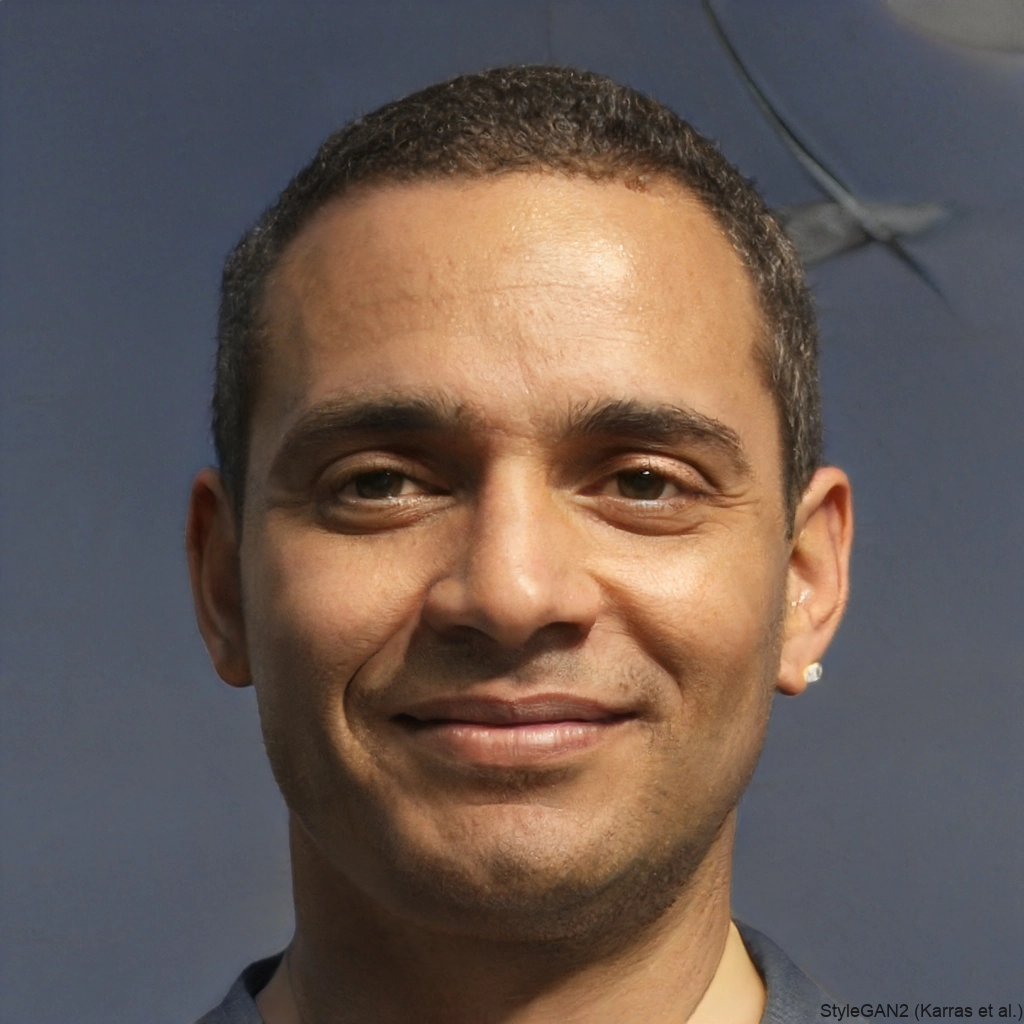
Raja specializes in Physics and Maths, with over 5 years of experience. He offers KS2, KS3, and GCSE Science and Maths lessons. He graduated from one of the top universities in the UK.
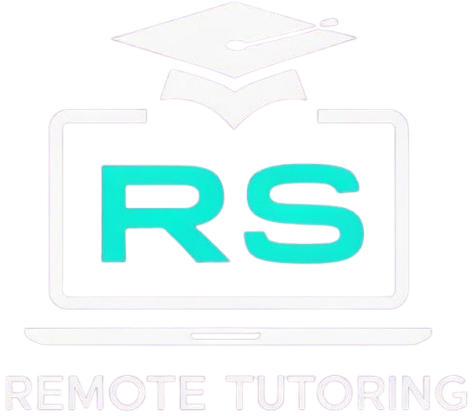
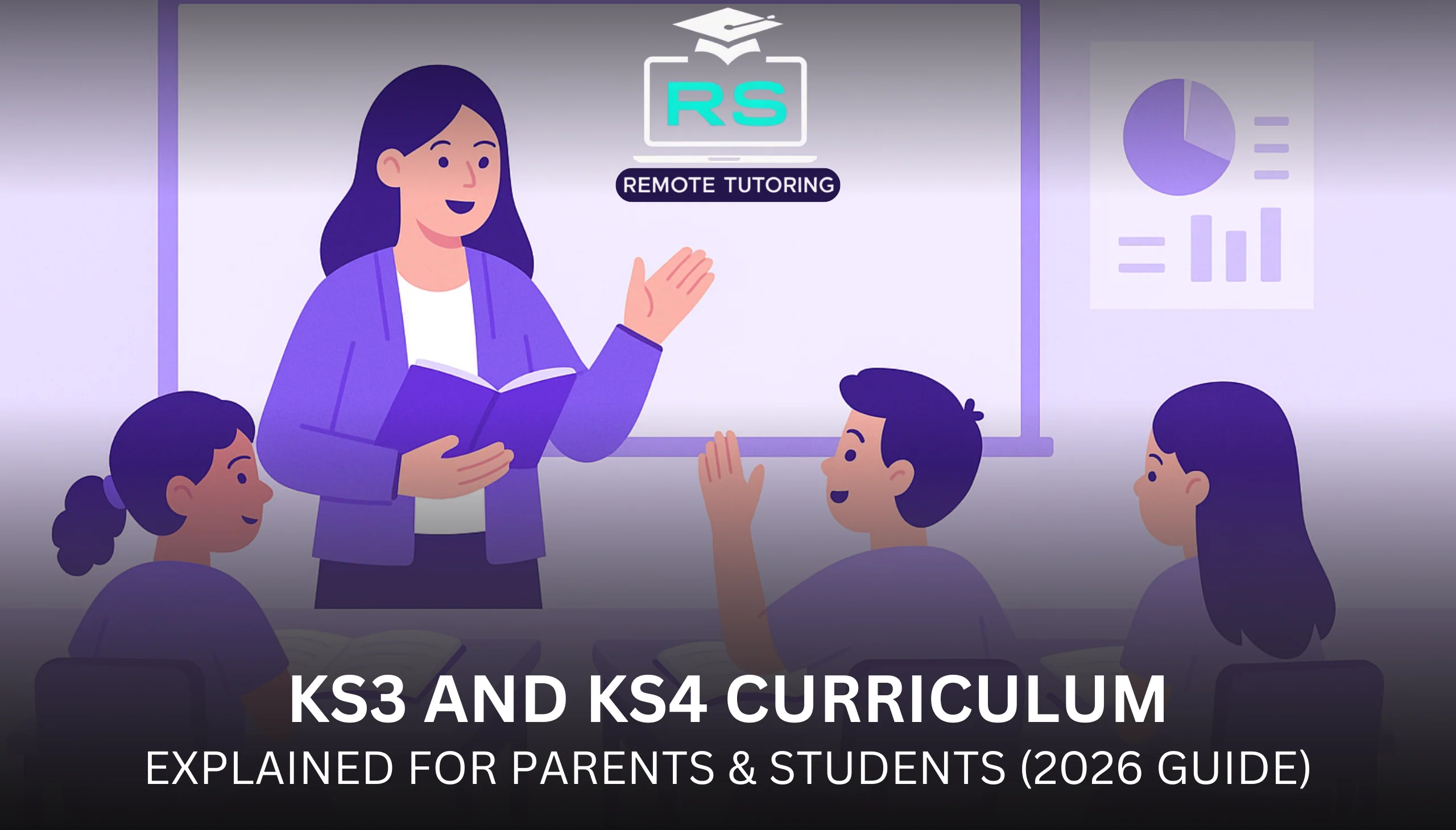
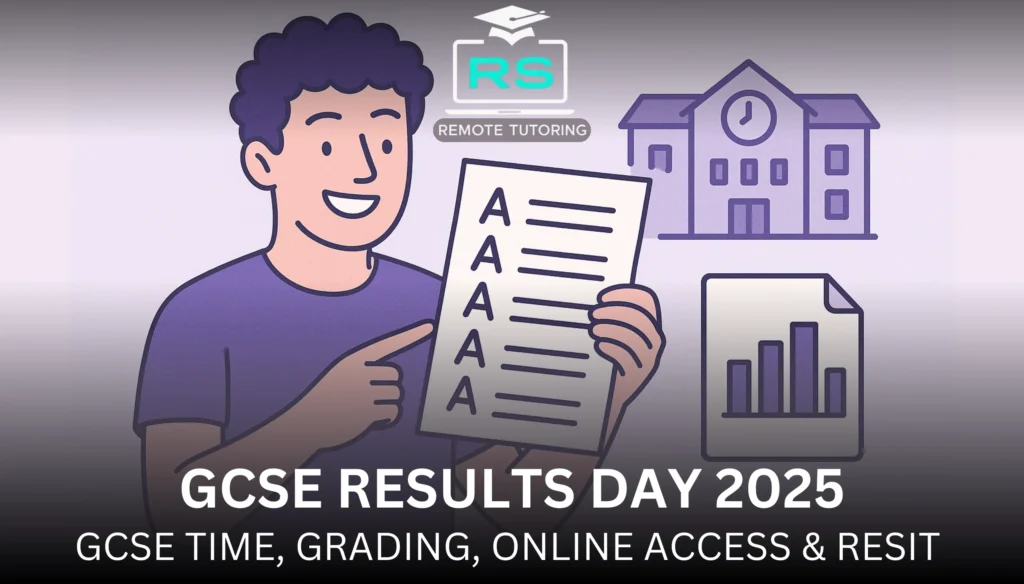
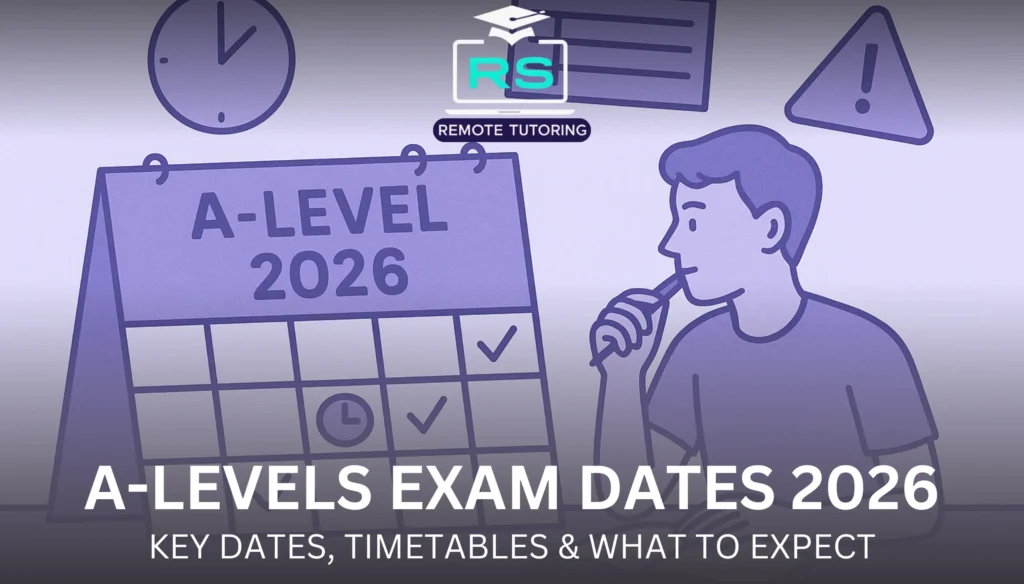
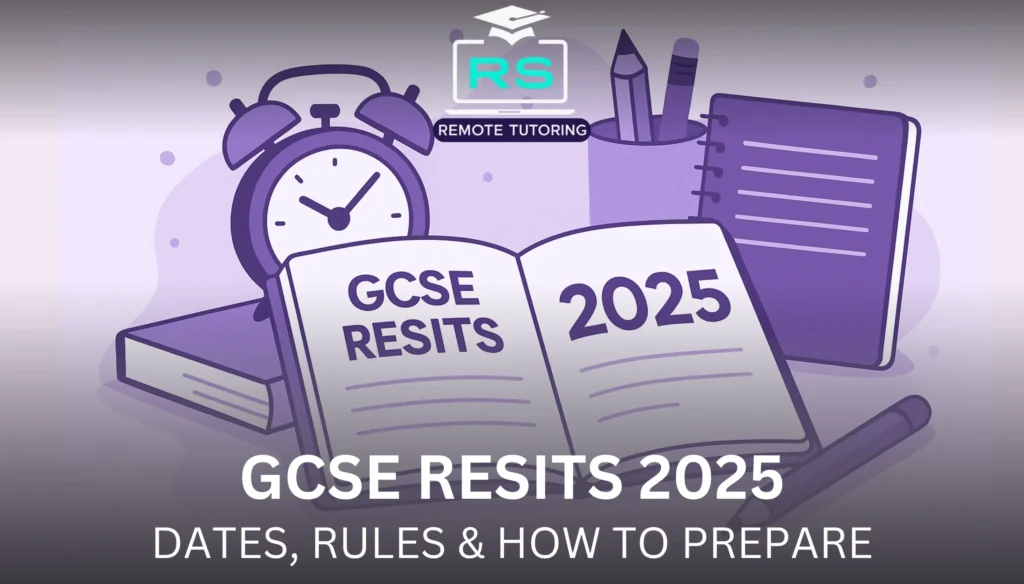
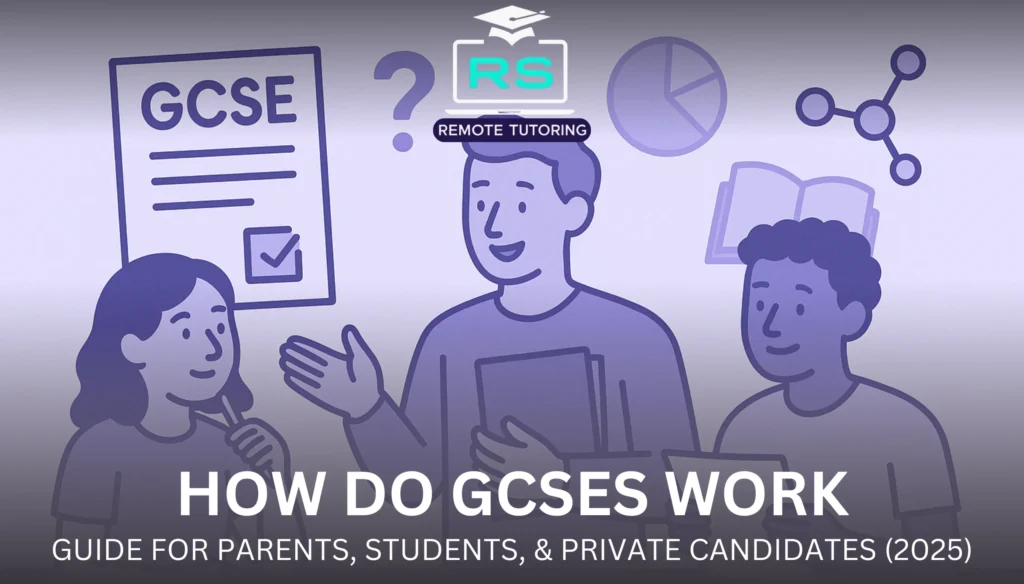
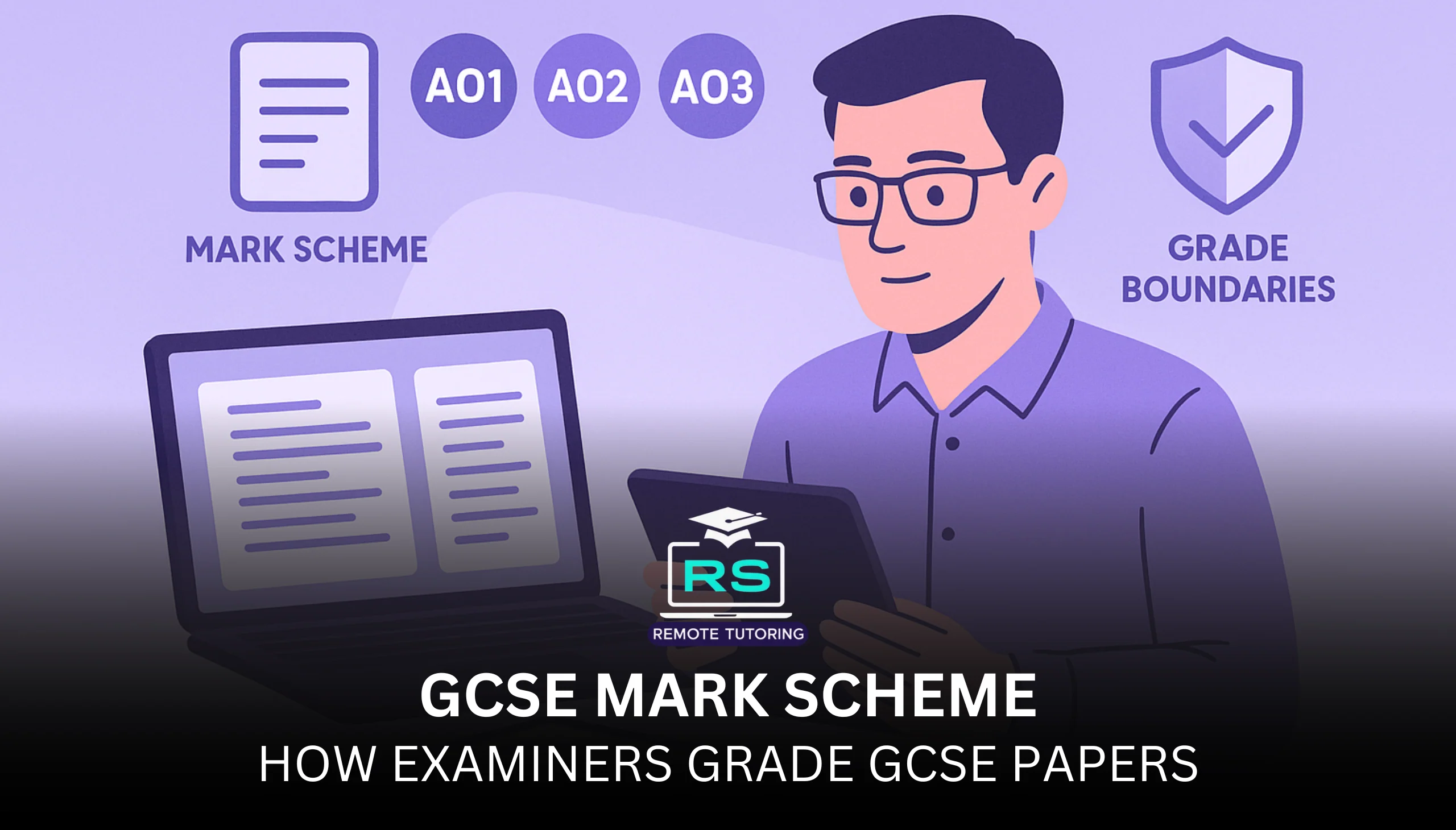
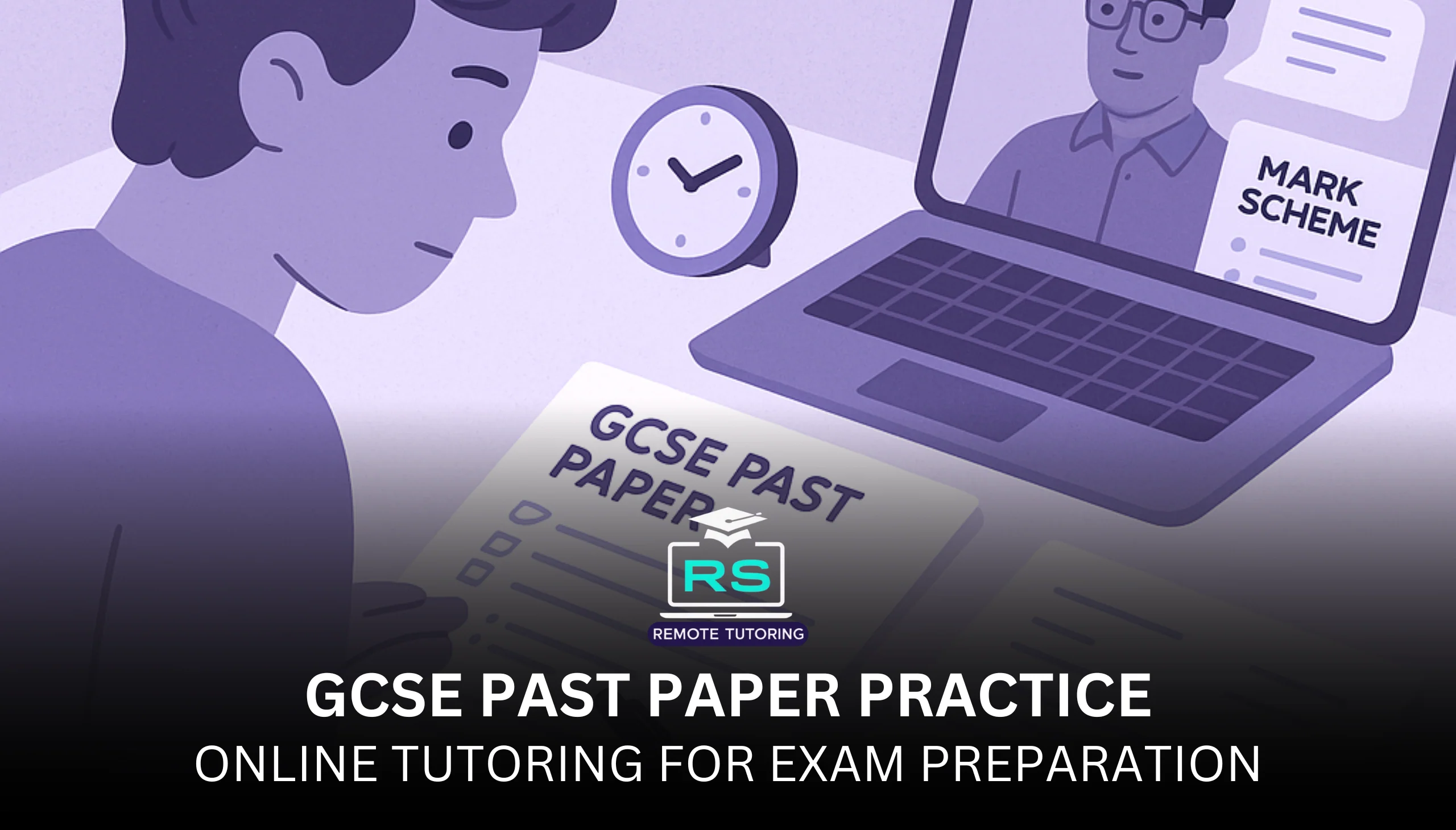
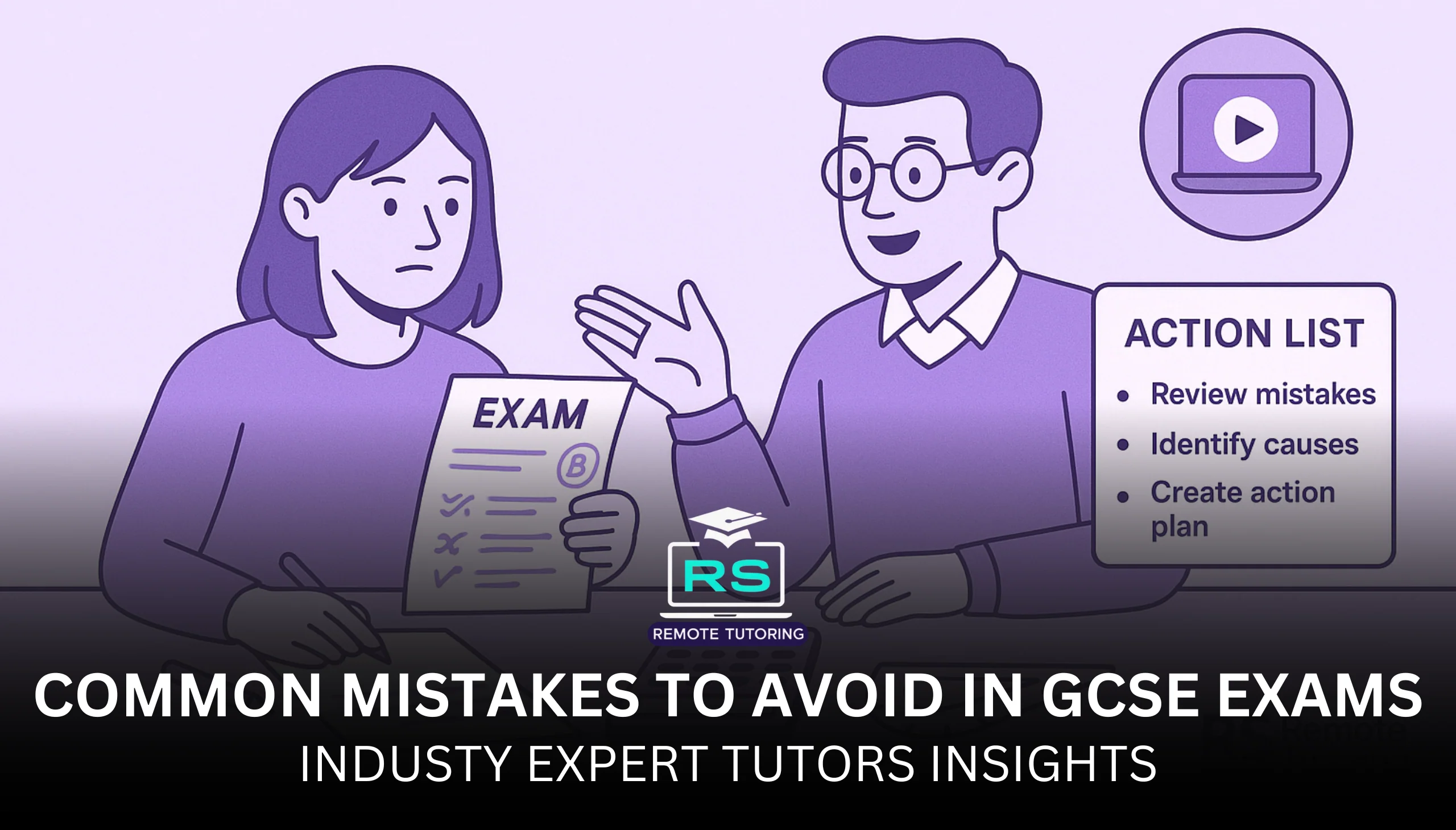
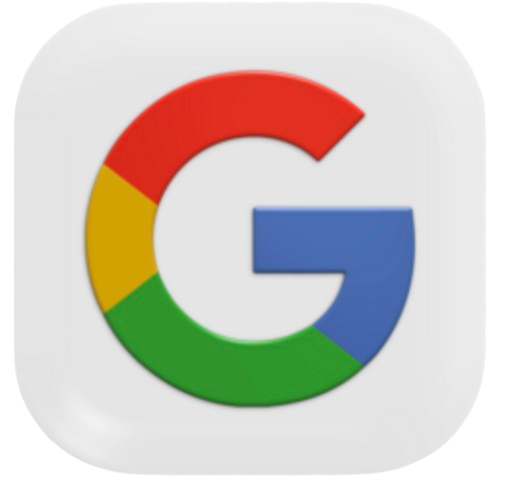
1 Comment
[…] Computer Science), and religious or citizenship studies. These broad categories provide a balanced GCSE curriculum and keep options open for later […]